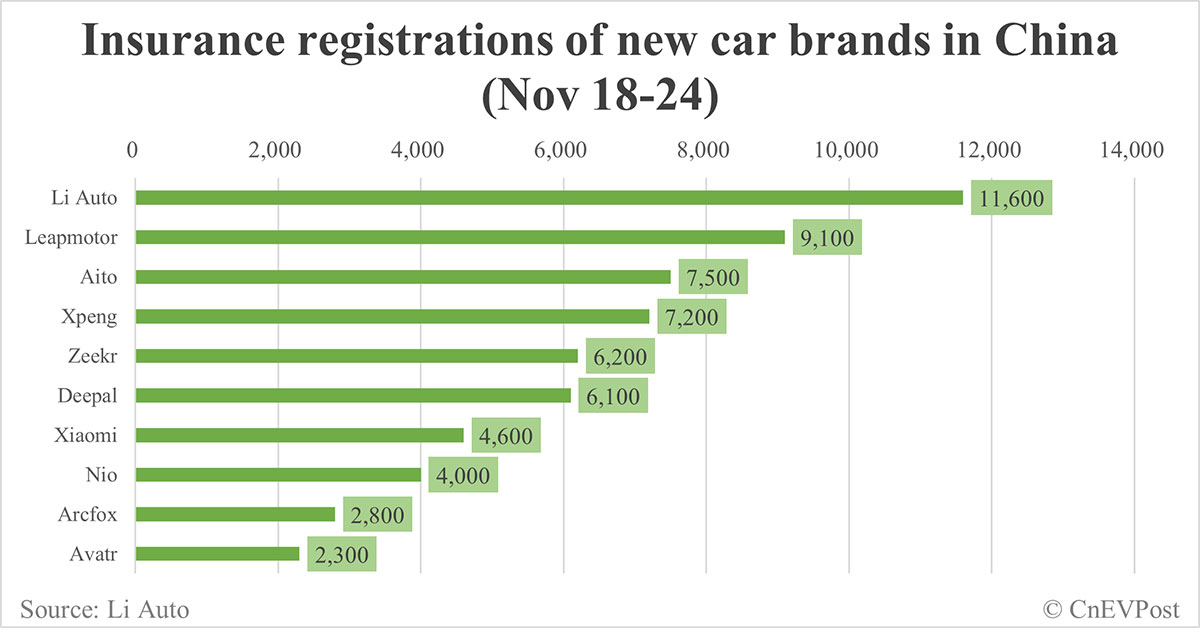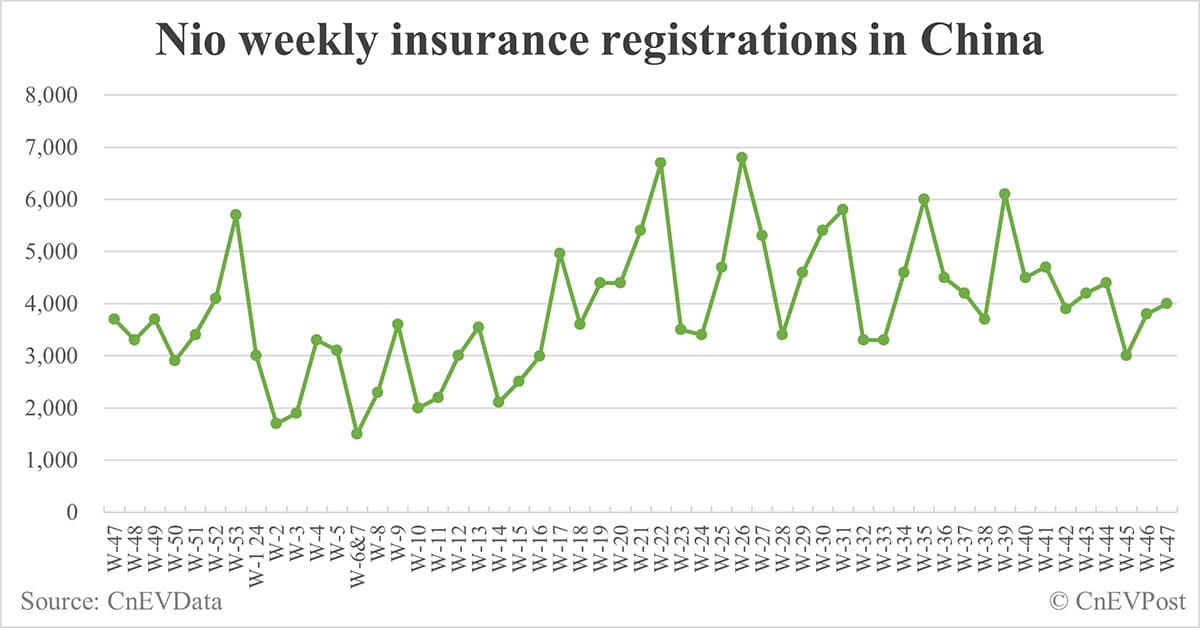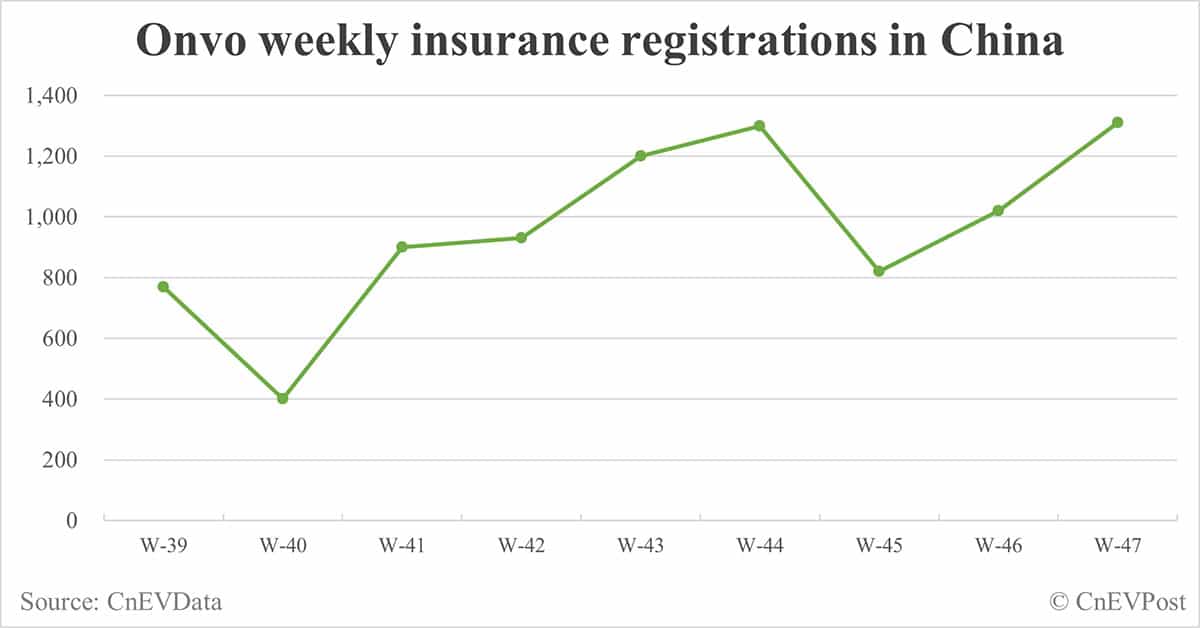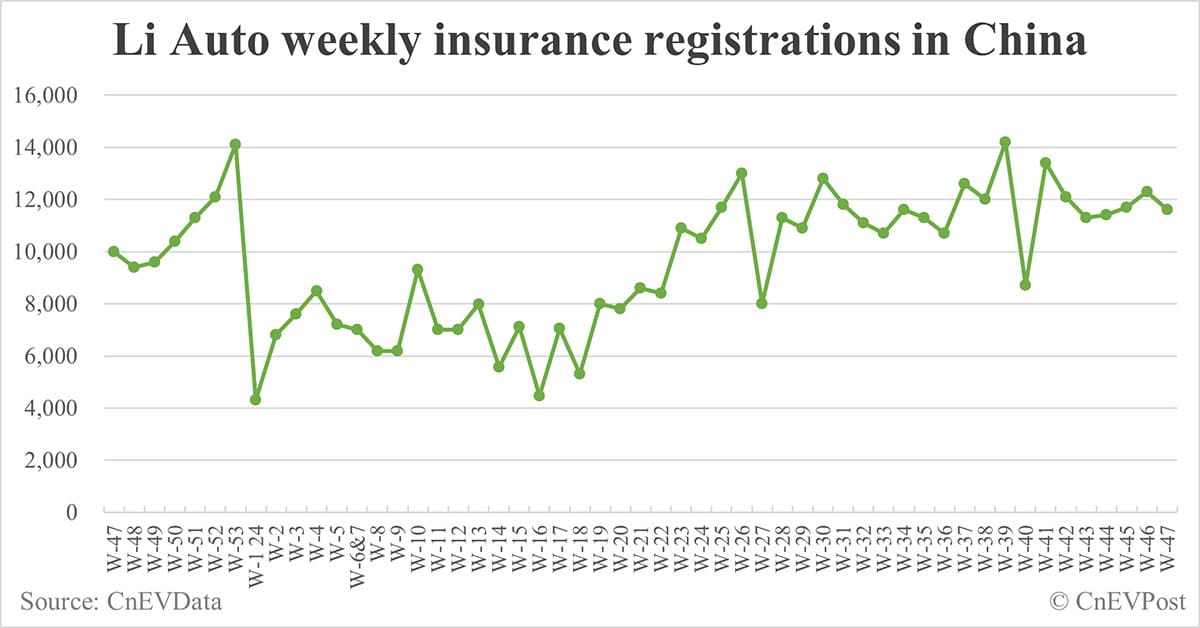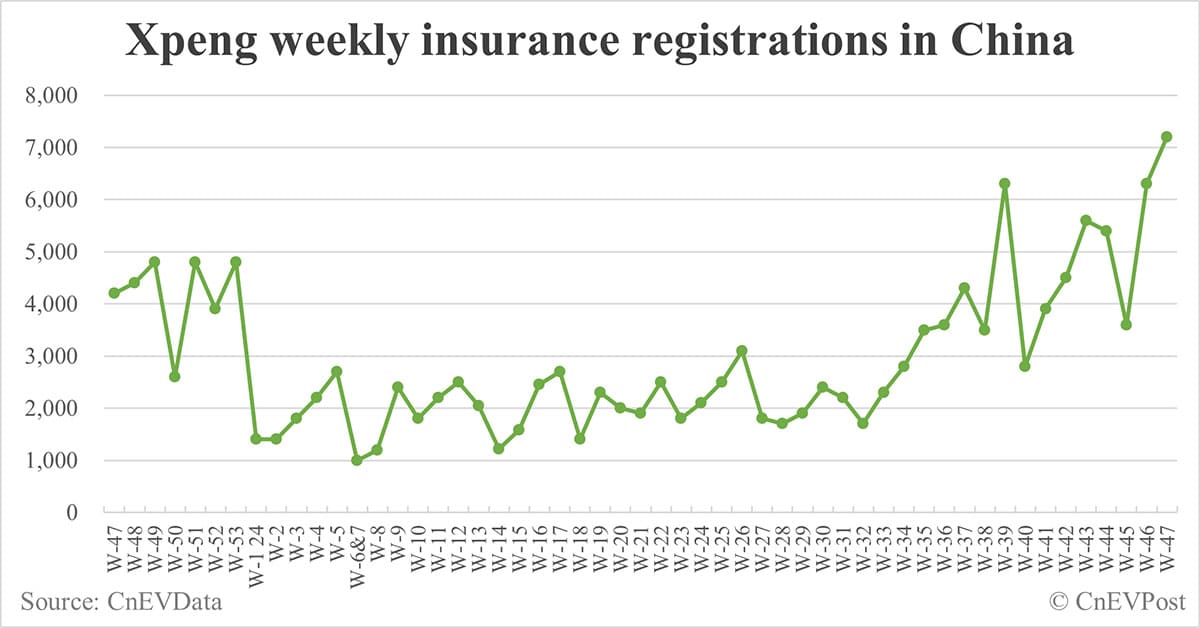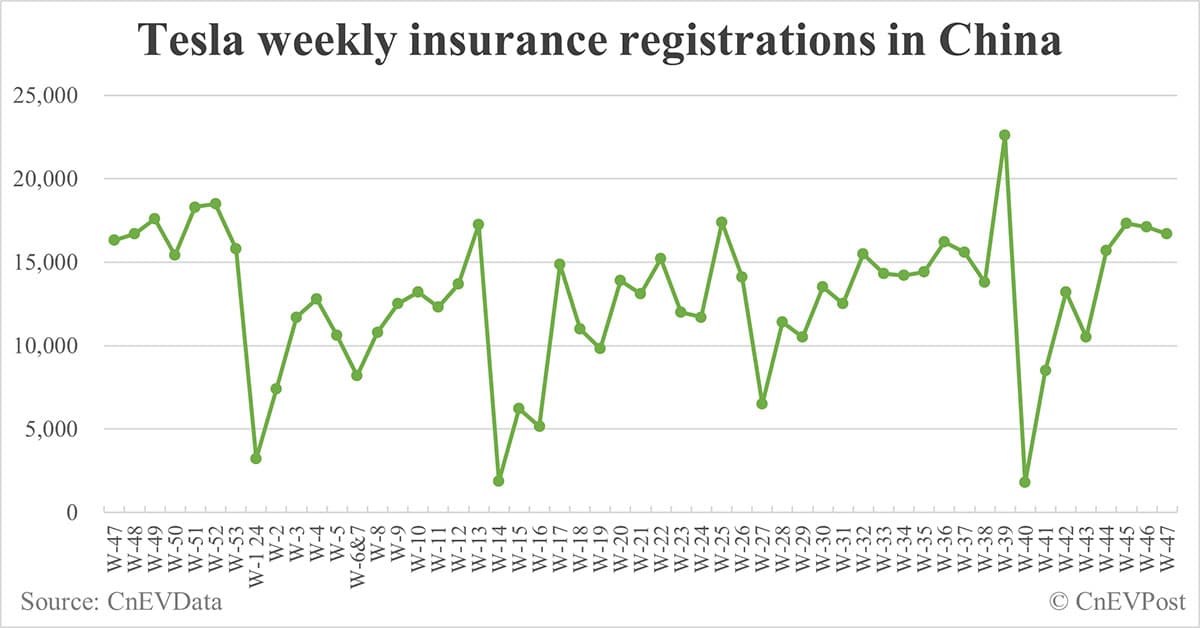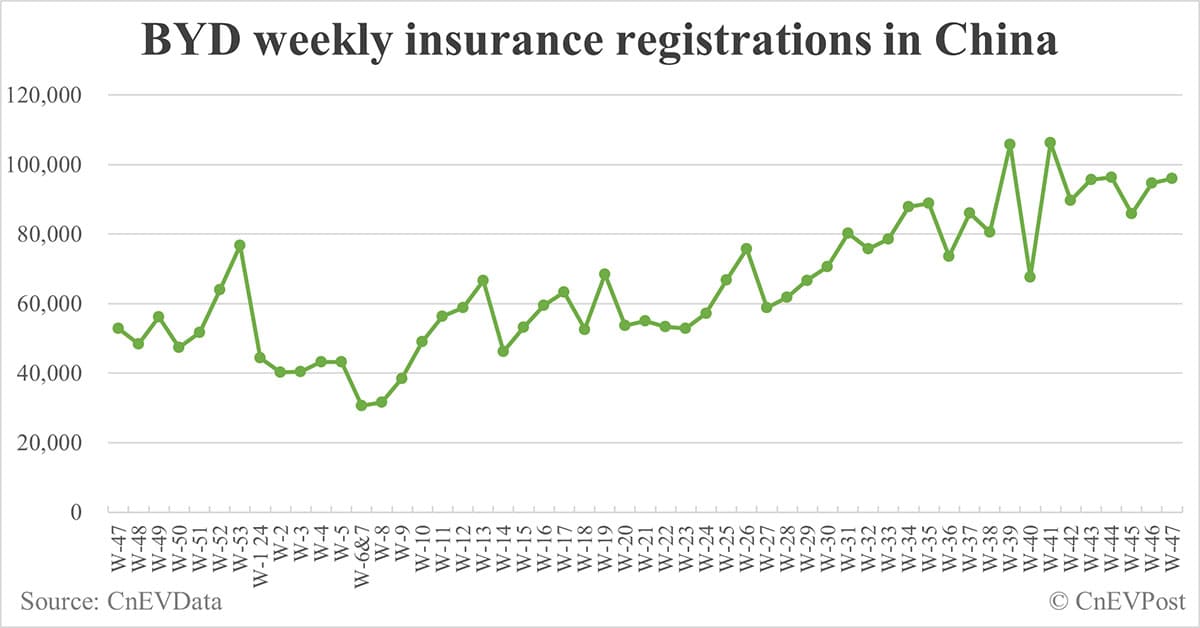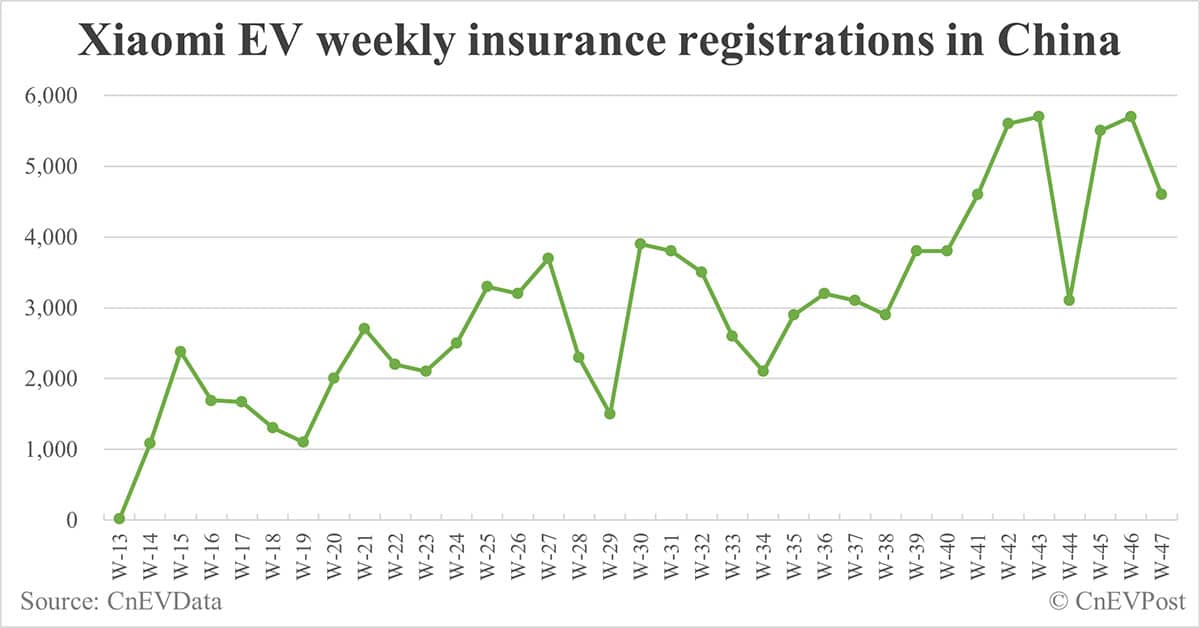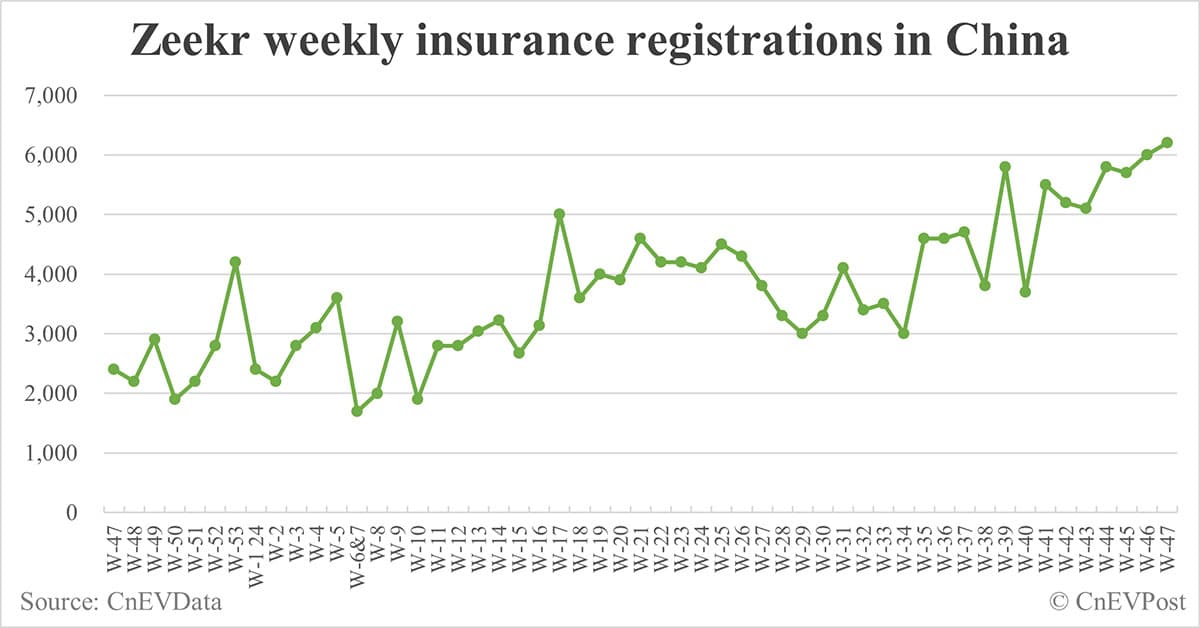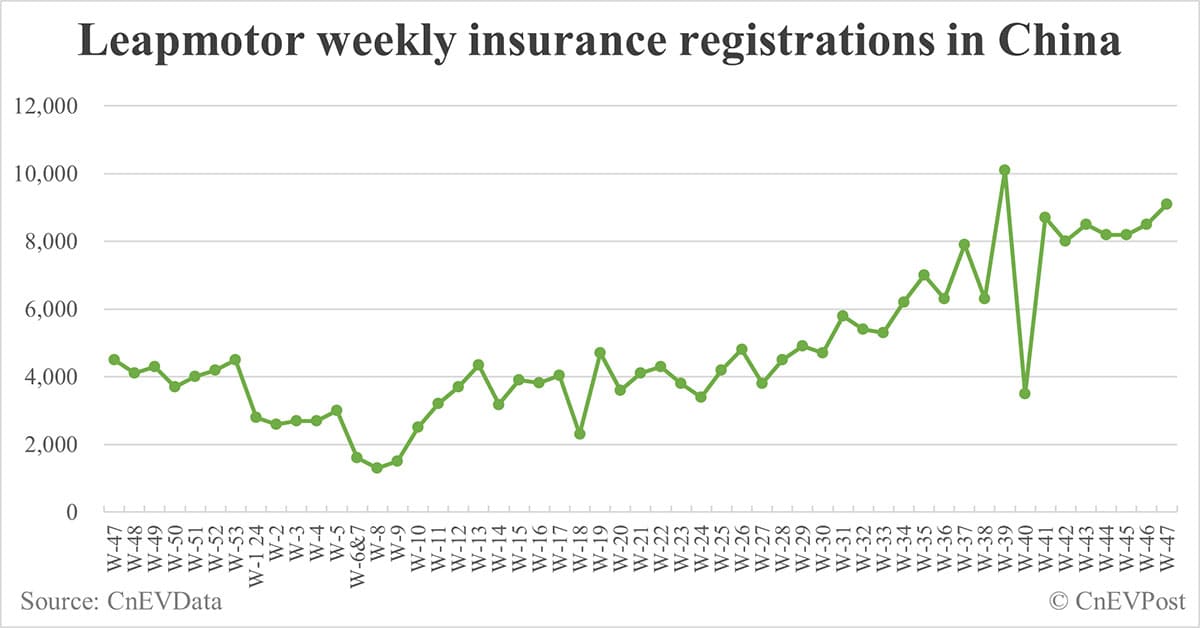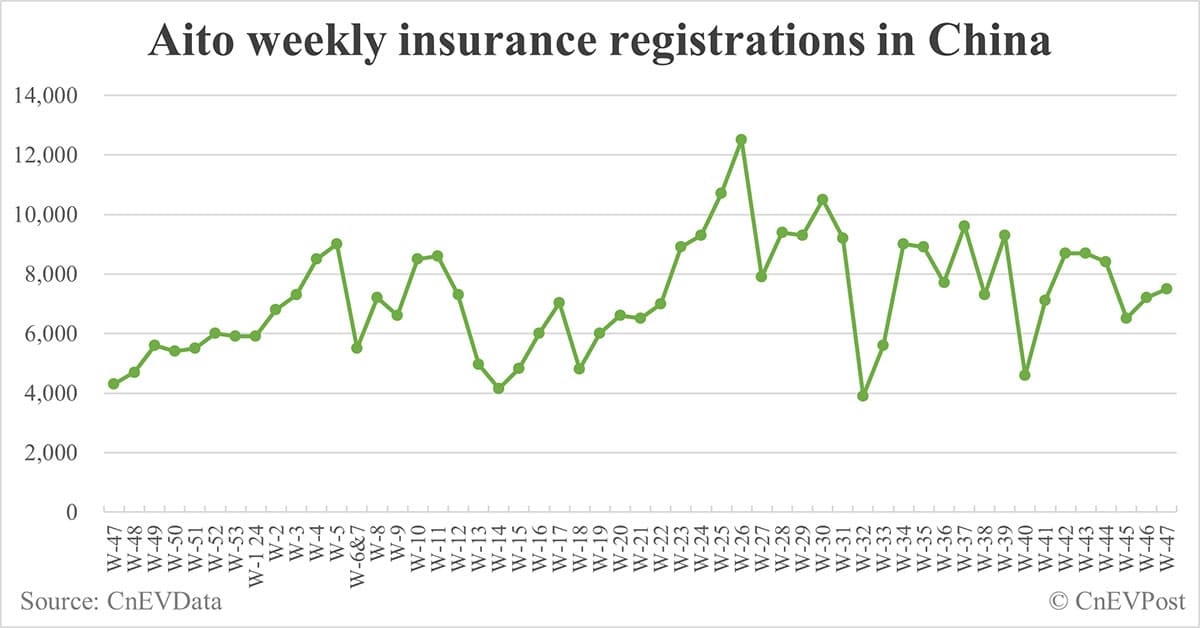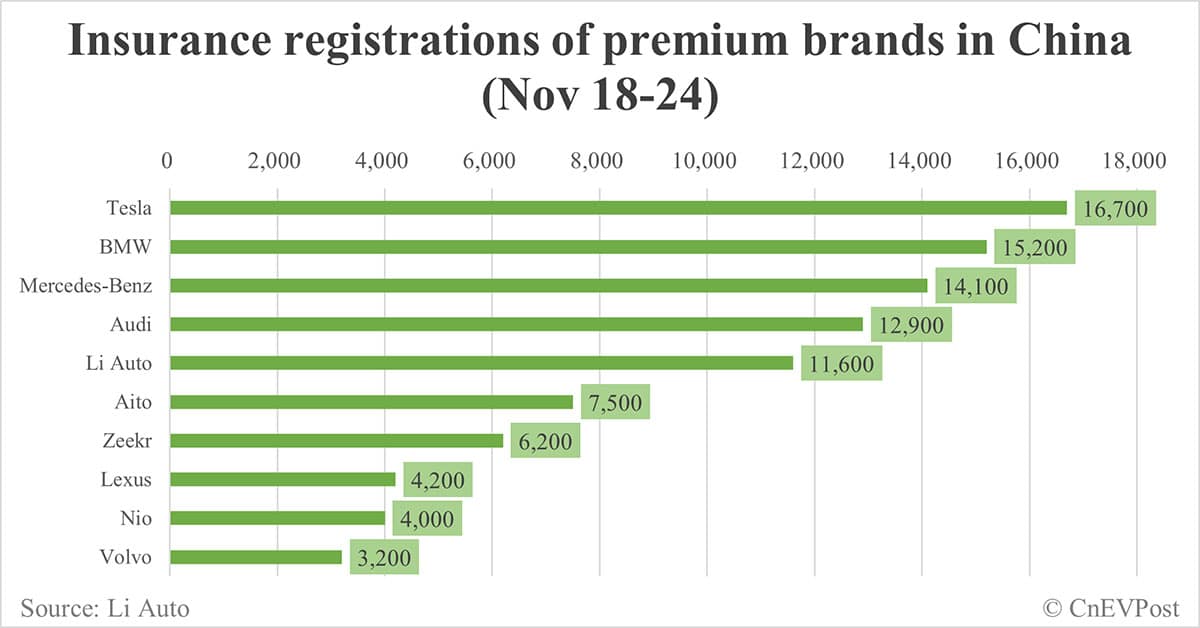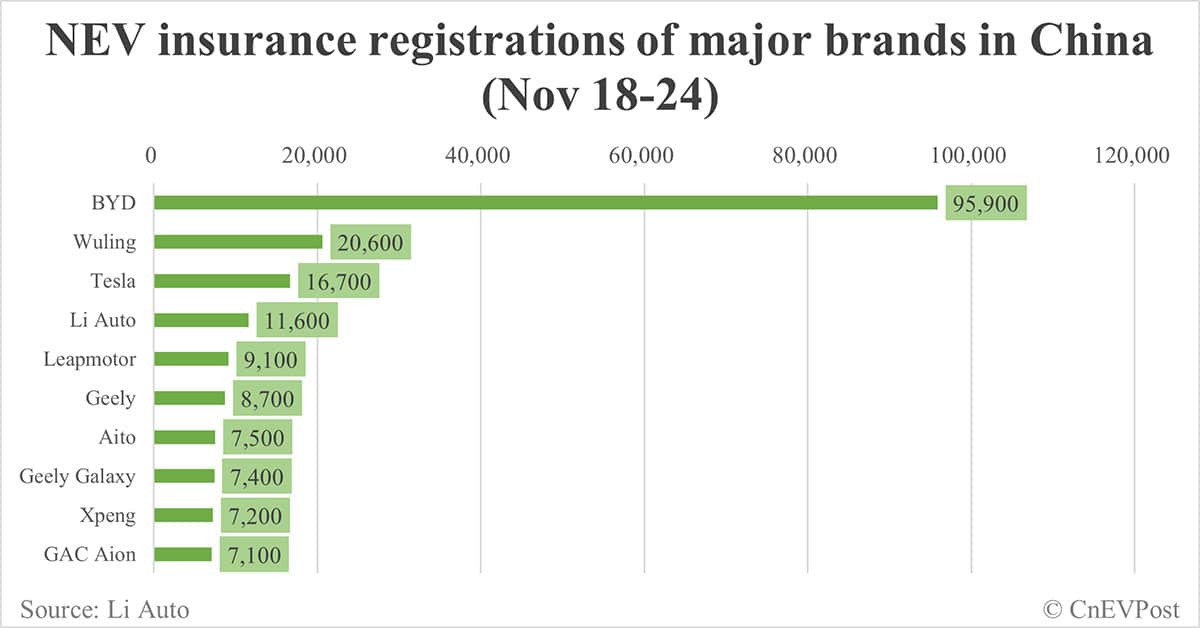Li Auto had 11,600 insurance registrations last week, Xpeng 7,200, Zeekr 6,200, Leapmotor 9,100 and Aito 7,500.
Major electric vehicle (EV) makers mostly saw insurance registrations rise in China last week.
For the week of November 18-24, Nio (NYSE: NIO) branded vehicles saw insurance registrations of 4,000 units in China, up 5.26 percent from 3,800 in the previous week, according to data shared today by Li Auto (NASDAQ: LI).
Li Auto stopped sharing weekly insurance enrollment numbers earlier this year, after doing so for about 1 year. In early May, it resumed sharing those numbers in the form of weekly rankings.
The numbers Li Auto shares are by brand, which in Nio's case excludes sales of sub-brand Onvo.
Onvo failed to make the lists shared by Li Auto as before, but according to figures shared by several car bloggers on Weibo, the Nio sub-brand had around 1,300 insurance registrations last week, up 27.45 percent from 1,020 the week before.
Onvo launched its first model, the L60, on September 19, and deliveries began on September 28.
Nio Inc delivered 20,976 vehicles in October, up 30.50 percent from 16,074 a year ago while down 0.97 percent from 21,181 in September.
The Nio main brand delivered 16,657 vehicles in October, up 3.63 percent from 16,074 a year ago but down 18.14 percent from 20,349 in September. Onvo delivered 4,319 vehicles in October, up 419.11 percent from 832 in September.
Nio guided for fourth-quarter vehicle deliveries to be in the range of 72,000 to 75,000 vehicles in its third-quarter earnings report on November 20, representing year-on-year growth of about 43.9 percent to 49.9 percent.
The guidance means that Nio is expected to deliver a total of 51,024 to 54,024 vehicles in November and December, with full-year deliveries expected to be in the range of 221,000 to 224,000 vehicles.
Nio management said in its third-quarter earnings call that it's targeting a doubling of sales by 2025. That means the company is aiming to deliver about 450,000 vehicles next year.
Li Auto had 11,600 insurance registrations last week, down 5.69 percent from 12,300 the previous week, according to figures shared by the company.
The automaker delivered 51,443 vehicles in October, up 27.26 percent year-on-year but down 4.22 percent from September.
Li Auto on October 31 guided fourth-quarter vehicle deliveries to be between 160,000 and 170,000 vehicles, implying a year-on-year increase of 21.4 percent to 29.0 percent, slightly higher than the 152,831 vehicles delivered in the third quarter.
The guidance implies that Li Auto's monthly deliveries for the last two months of the year are likely to be at just over 50,000 units.
Li Auto's deliveries for the full year 2024 would be in the range of 501,812 to 511,812 units, according to the guidance.
In the January-October period, Li Auto delivered 393,255 vehicles, up 38.16 percent year-on-year.
Xpeng (NYSE: XPEV) had a record 7,200 insurance registrations last week, up 14.29 percent from 6,300 the week before.
It delivered 23,917 vehicles in October, up 19.57 percent from 20,002 a year ago and up 12.01 percent from 21,352 in September.
In the January-October period, Xpeng delivered 122,478 vehicles, up 20.73 percent year-on-year.
Xpeng on November 19 guided fourth-quarter vehicle deliveries between 87,000 and 91,000 vehicles, up about 44.6 percent to 51.3 percent year-on-year.
That guidance means it is on track to deliver a total of 63,083 to 67,083 vehicles in November and December.
Tesla (NASDAQ: TSLA) had 16,700 insurance registrations in China last week, down 2.34 percent from 17,100 the previous week.
Tesla has a factory in Shanghai that produces the Model 3 sedan and Model Y crossover, both for deliveries to local customers and as an export hub for it.
Tesla China sold 68,280 vehicles in October, including 27,795 for export, data from the China Passenger Car Association (CPCA) showed.
The US EV maker sold 40,485 vehicles in China in October, the lowest since April.
Tesla announced on November 25 that Chinese customers who ordered the two lower-priced variants of the Model Y between November 25 and December 31 could receive an RMB 10,000 ($1,380) reduction on their final payment.
At the same time, the company further extended the five-year, 0 percent interest financing incentive in China applicable to all variants of the Model 3 and Model Y until December 31. The incentive was originally set to expire on November 30.
BYD (HKG: 1211, OTCMKTS: BYDDY) had 95,900 insurance registrations last week, up 1.27 percent from 94,700 the week before.
It sold 502,657 new energy vehicles (NEVs) in October, surpassing the 500,000 mark for the first time and marking the fifth consecutive month of record highs.
This is up 66.53 percent from 301,833 in the same period last year and up 19.84 percent from 419,426 in September.
In the January-October period, BYD's NEV sales amounted to 3,250,532 units, up 36.49 percent year-on-year.
BYD announced on November 18 that its 10 millionth NEV rolled off the assembly line, the Z9 sedan, which sub-brand Denza officially launched on November 15, the first day of the Guangzhou auto show.
Xiaomi (HKG: 1810, OTCMKTS: XIACY) had 4,600 insurance registrations last week, down 19.30 percent from 5,700 the week before.
Xiaomi said on November 18 that it had delivered more than 100,000 units of its sole model, the SU7, and announced a new 2024 target of 130,000 units.
In the third quarter, Xiaomi earned revenue of RMB 9.5 billion from its EV business, up 52.1 percent from RMB 6.2 billion in the second quarter, according to its earnings report released last week.
It delivered 39,790 units of its SU7 series EVs in the third quarter.
Xiaomi's second EV model is scheduled to go on sale in February or March next year, internally codenamed MX11, and would compete directly with the Tesla Model Y, according to a November 21 report in local media outlet Caijing.
Zeekr (NYSE: ZK) had a record 6,200 insurance registrations last week, up 3.33 percent from 6,000 the week before.
It delivered a record 25,049 vehicles in October, surpassing September's previous record of 21,333 vehicles. This is a 91.55 percent increase year-on-year and a 17.42 percent increase from September.
In the January-October period, Zeekr delivered 167,922 vehicles, up 82.32 percent year-on-year.
The company is targeting to deliver around 230,000 vehicles for the whole of this year. That means that to meet its target, it will need to deliver an average of about 31,000 vehicles per month in the remaining two months.
Leapmotor (HKG: 9863) saw insurance registrations of 9,100 vehicles last week, up 7.06 percent from 8,500 the week before.
It delivered 38,177 vehicles in October, up 109.74 percent year-on-year and up 13.06 percent from September.
This is the fifth consecutive month of record monthly deliveries for the NEV maker and the third consecutive month of over 30,000 units.
In the January-October period, Leapmotor delivered 211,038 vehicles, an increase of 97.18 percent year-on-year. It is aiming to deliver 250,000 vehicles for this year.
Leapmotor is targeting sales of 500,000 vehicles for the full year in 2025, its management said on its November 11 third-quarter earnings call.
The Stellantis NV (NYSE: STLA) backed Chinese NEV maker showcased the B10 SUV (sport utility vehicle) on November 15 on the first day of the 2024 Guangzhou auto show, saying the official launch will be in the first quarter of 2025.
Aito -- a brand jointly created by Huawei and Seres Group -- saw insurance registrations of 7,500 vehicles last week, up 4.17 percent from 7,200 the week before.
($1 = RMB 7.2543)
